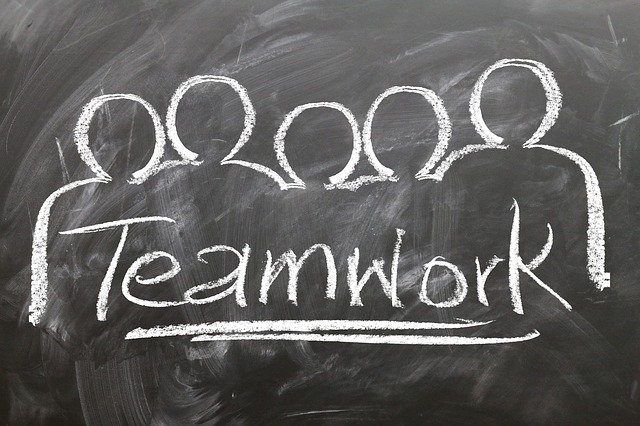How to Build a Culture of Teamwork Within Your Company
By Maria Forbes
July 20, 2020
Teamwork is a driving force behind nearly all successful companies. Research shows that three-quarters of employers rate it as being “very important” to their respective company’s operations. Employees who work together as a team can complete tasks faster, more efficiently and better than their counterparts who work independently each of other. As an employer, though, you might be wondering how you can encourage teamwork within your company.
Hire the Right Employees
Building a culture of teamwork begins with hiring the right employees. Some employees are naturally more team-oriented than others. They are eager to communicate and work with their coworkers to achieve a shared goal. Other employees prefer to work by themselves and have little or no desire to participate in team projects.
Here are a few signs that a candidate has excellent teamwork skills:
- Past experience working in groups
- Listens to feedback and accepts constructive criticism
- Passionate about helping his or her coworkers succeed
- Excellent organizational and planning skills
- Ability to resolve problems with logical reasoning
- Not afraid to seek help
- Strong interpersonal skills
Use an Open Office Design
The way in which your company’s office is designed can affect the degree to which employees work together as a team. There are two primary types of office designs: closed and open. Of those two designs, the latter encourages a higher level of teamwork.
A closed office design is a layout that’s characterized by cubicles, walls or similar partitioning structures. An open office design, on the other hand, lives up to its namesake by featuring an open layout. Using an open office design encourages employees to work together as a team. Employees can easily communicate among themselves in an open office, thereby fostering a culture of teamwork.
Embrace Technology
You can use technology to build a culture of teamwork within your company. Technology eliminates many of the barriers that can prevent or restrict employees from working together as a team. Using a virtual conferencing app, for instance, employees can hold virtual meetings remotely. Employees don’t have to physically meet in a conference room or other workspace. Rather, they can use a virtual conferencing app to hold a virtual meeting.
Virtual conferencing apps are just one of many technologies that can encourage teamwork. Other technological solutions include project management software, file-sharing software and cloud computing services. By embracing technology, you’ll have an easier time building a culture of teamwork within your company.

Assign Roles
The assignment of roles can encourage employees to work together as a team. Roles provide structured guidance for employees in a team. You can’t just tell a half-dozen or more employees to complete a project and expect it to go smoothly. If an employee doesn’t have a clear role, he or she won’t know what to do.
Assigning roles is useful for team projects because it provides structured guidance. If a project has six team members, you should assign each of those six employees to a specific role. As a result, they won’t have to question their respective part in the team. Each employee will know what’s expected and what they must to do complete the project.
Set Team Goals
Another way to encourage teamwork is to set goals for your company’s teams. Don’t just set individual goals. Rather, set team goals that can be only achieved with teamwork. Team goals are distinguished from other types of goals by requiring employees to work together.
With team goals, employees will feel more motivated to work together as a team. No single employee should be able to complete a team goal by themselves. They’ll have to work together, which will naturally foster a higher level of teamwork. You can set both short and long-term team goals. A short-term goal may be the completion of a team project by the end of a relatively short time period, such as one or two months, whereas a long-term goal should have a longer length of completion, such as several months or even a year. Regardless, setting team goals will encourage employees to work together.
Reward Teamwork
Along with setting team goals, you can build a culture of teamwork within your company through the use of rewards. If you set team goals, consider rewarding employees for achieving them.
Rewards can be either monetary or non-monetary. A cash bonus is always a welcome reward by employees. However, non-monetary rewards like a free lunch, priority parking or a gym membership can be just as effective at encouraging teamwork.
Teamwork isn’t a technical soft; it’s a soft skill. And like other soft skills, teamwork is difficult to teach. The good news is that you can still build a culture of teamwork within your company. Hiring the right employees, using an open office design, embracing technology, assigning roles, setting goals and offering rewards are just a few ways that you can encourage employees to work together as a team.




